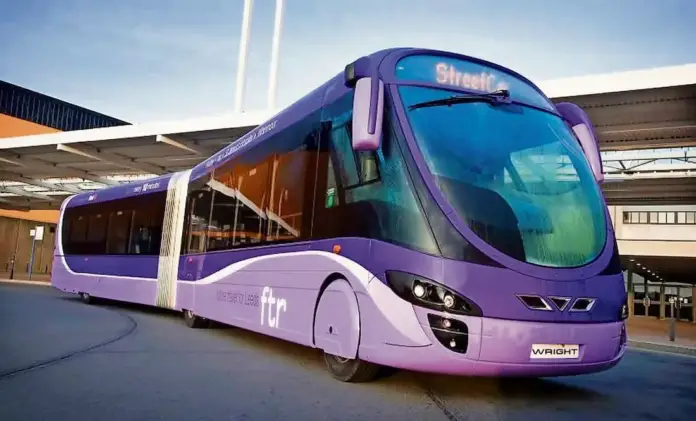In Mexico, the average age of trucks and buses providing public transport service is around 20 years, so the country needs nearly 400,000 electric buses to replace them in the next 20 years, according to the company MegaFlux.
In an interview, Roberto Gottfried, CEO of MegaFlux, said that there are four domestic electric bus manufacturers in India, and the government has offered to tender the purchase of 20,000 electric buses per year to electrify the public transport fleet.
“That happens when the government commits to an energy transition. I would say that Mexico needs 400,000 electric buses in 20 years, about 20,000 per year, like in India,” he indicated.
“Operating an electric bus is more economical than a hydrocarbon-powered bus, such as natural gas, because over the 10 years the truck or bus will last, it will be cheaper than a combustion-powered bus. This explains why electric buses are more expensive because they are amortized through fuel savings,” he explained.
The company introduced the first domestically manufactured electric bus to provide electric transportation in medium-sized cities.
The electric bus designed by MegaFlux is called the Taruk and has a capacity of 60 passengers, ideal for medium-sized cities. The bus recently received the “Made in Mexico” certification from the Secretary of Economy, Marcelo Ebrard.
The bus is the result of a collaboration between MegaFlux and Dina. The former is responsible for providing the powertrain, electric motors, harnesses, battery banks, and some hardware, while Dina builds the chassis, body, and performs final assembly at a plant in Ciudad Sahagún.
Dina has a production capacity of 2,000 buses per year, but can scale up to 6,000 units per year if necessary.
Gottfried emphasized that the UNAM Engineering Institute collaborated in the validation of all Taruk’s systems and vehicle integration, while the UAM Iztapalapa University contributed expertise from its advanced laboratory to validate the battery electrochemistry.
“The battery pack was designed and built in Mexico; the lithium cells are sourced from abroad,” he emphasized. The bus costs between 5 and 6 million pesos.
It is offered with three different battery ranges: 180, 250, and 385 kilometers, as not all public transportation routes cover the same distance per day.
“We conducted tests with RTP, and they traveled 286 kilometers on the longest day, with three work shifts,” Gottfried explained.

Source: eluniversal




